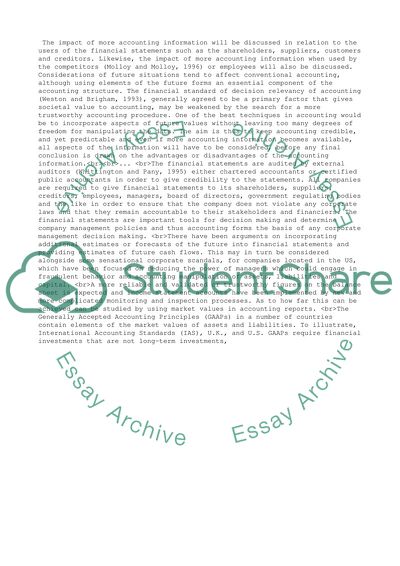Cite this document
(“IMPACT OF MORE ACCOUNTING INFORMATION Essay Example | Topics and Well Written Essays - 3000 words”, n.d.)
IMPACT OF MORE ACCOUNTING INFORMATION Essay Example | Topics and Well Written Essays - 3000 words. Retrieved from https://studentshare.org/business/1513218-accounting-information-essay
IMPACT OF MORE ACCOUNTING INFORMATION Essay Example | Topics and Well Written Essays - 3000 words. Retrieved from https://studentshare.org/business/1513218-accounting-information-essay
(IMPACT OF MORE ACCOUNTING INFORMATION Essay Example | Topics and Well Written Essays - 3000 Words)
IMPACT OF MORE ACCOUNTING INFORMATION Essay Example | Topics and Well Written Essays - 3000 Words. https://studentshare.org/business/1513218-accounting-information-essay.
IMPACT OF MORE ACCOUNTING INFORMATION Essay Example | Topics and Well Written Essays - 3000 Words. https://studentshare.org/business/1513218-accounting-information-essay.
“IMPACT OF MORE ACCOUNTING INFORMATION Essay Example | Topics and Well Written Essays - 3000 Words”, n.d. https://studentshare.org/business/1513218-accounting-information-essay.


